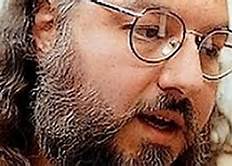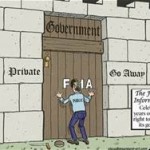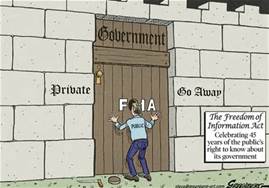Update (4-1-2014)
In an effort to continue talks between Israel and the Palestinians, Israel has demanded for years the release of Pollard. There is some chatter now that his freedom could come within two weeks. It should be noted that the United States has released and returned many spies to their home country over the years.
A file is here for your review on the Pollard case.
Currently, John Kerry is working both sides of the fence in the matter of peace talks between Israel and the Palestinians. Kerry forced Israel to release prisoners with very nasty and deadly histories while Abbas has not given up anything. It should be noted here perhaps that the Palestinian Liberation Organization was in fact an invention of the Russian KGB of which Abbas, its current leader has a deep history in Russia.
Now, one matter that Israel has asked for since the Clinton administration is the release of Jonathon Pollard now serving a life sentence for providing covert technical documents to the Israelis, of course our long-term ally in the Middle East. George Tenet advised Clinton not to release Pollard and even today, with the White House and John Kerry working against Israel on a number of major issues, the Obama administration still refuses the call by Israel to the United States to release Pollard.
November, 1998
C.I.A. CHIEF VOWED TO QUIT IF CLINTON FREED ISRAELI SPY
During the Middle East peace talks last month in Maryland, the Director of Central Intelligence told President Clinton he would resign if Mr. Clinton agreed to release the spy Jonathan Jay Pollard, according to several Administration officials.
The Director, George Tenet, who was directly involved in the peace negotiations, made his warning to President Clinton after learning that Prime Minister Benjamin Netanyahu of Israel had made Mr. Pollard’s case a key bargaining point, officials said.
In the end Mr. Clinton turned down Mr. Netanyahu’s request, agreeing only to review the matter once again, and the dispute did not prevent the negotiators from reaching a peace agreement.
Mr. Tenet refused to comment on the matter today, as did a spokesman for the Central Intelligence Agency.
Mr. Tenet’s threat to resign was a direct reflection of the depth of anger against Mr. Pollard that lingers among American intelligence and law enforcement officials 13 years after the former Naval intelligence analyst was arrested for passing top secret documents to Israel. He is now serving a life term.
A White House spokesman, David C. Leavy, refused to comment on whether Mr. Tenet threatened to resign over Pollard. But he did say, ”At no time did the President make a decision to release Mr. Pollard.”
During the conference, at Wye, Md., Mr. Clinton had been ”impressed by the force of Mr. Netanyahu’s arguments” on the Pollard matter, Mr. Leavy said.
The President then went back to consult with his advisers, including Mr. Tenet and his national security adviser, Samuel R. Berger, and eventually decided that he could not agree to Mr. Netanyahu’s demand, Mr. Leavy added.
Mr. Tenet’s threat to resign was a direct reflection of the depth of anger against Mr. Pollard that lingers among American intelligence and law enforcement officials 13 years after the former Naval intelligence analyst was arrested for passing top secret documents to Israel. He is now serving a life term.
A White House spokesman, David C. Leavy, refused to comment on whether Mr. Tenet threatened to resign over Pollard. But he did say, ”At no time did the President make a decision to release Mr. Pollard.”
During the conference, at Wye, Md., Mr. Clinton had been ”impressed by the force of Mr. Netanyahu’s arguments” on the Pollard matter, Mr. Leavy said.
The President then went back to consult with his advisers, including Mr. Tenet and his national security adviser, Samuel R. Berger, and eventually decided that he could not agree to Mr. Netanyahu’s demand, Mr. Leavy added.
Mr. Clinton agreed only to review the case again, for the third time in five years. United States intelligence and law enforcement circles insist that the American spy should never be given his freedom, and dismiss the fact that he acted on behalf of a friendly nation. But the far right in Israel has made Mr. Pollard’s release a celebrated cause — and Mr. Netanyahu has raised it with the President virtually every time they have met.
During the recent talks, Mr. Netanyahu told Mr. Clinton that he needed Mr. Pollard’s release in order to win over the right wing of his coalition to the peace agreement, according to senior American officials. Mr. Clinton was open to consideration of what Mr. Netanyahu and the Palestinian leader Yasir Arafat said they needed to help sell the peace agreement to their constituencies, these officials said. The President had been considering Mr. Pollard’s release, these officials said, when Mr. Tenet spoke up. ”It was clearly on the table,” said one American official.
Officials say Mr. Tenet believed that he would lose his credibility with his rank-and-file in the intelligence community if he were to agree to Mr. Pollard’s release from his life sentence.
”He knew that he was closely associated with these peace talks — it wasn’t like he was back at headquarters — and he couldn’t distance himself from this decision,” said one American official.
Mr. Tenet’s resignation would have forced Mr. Clinton to find his fourth C.I.A. director in less than six years — making the post one of the most difficult and intractable personnel problems that has faced his Administration.
Twice Mr. Clinton has had to stand by and watch as his nominees have been forced to withdraw before being confirmed by the Senate, and twice the President has had to find alternate candidates.
Mr. Tenet, 45, who was appointed Director of Central Intelligence in 1997 after former national security adviser, Anthony Lake, withdrew his nomination during partisan Senate confirmation hearings, had pledged to remain in the job for at least four years in order to provide the agency with some stability.
Since arriving at the C.I.A.’s Langley, Va. headquarters in 1995, first as the C.I.A.’s deputy director, Mr. Tenet has worked to revive the morale of agency employees and to provide a new focus after the cold war while winning increased financing from Congress.
The Pollard case was one issue on which it was impossible for Mr. Tenet to straddle both his political and intelligence constituencies.
In fact, as soon as word leaked out that Mr. Pollard’s freedom was a bargaining chip in the Middle East talks, American law enforcement and intelligence officials went into nearly open rebellion, complaining that the President should not release someone who had committed a massive betrayal of the national security. Accepting a Pollard deal with Mr. Netanyahu would have forced Mr. Tenet to side with the White House against his own lieutenants.
”If Pollard had been released, George would have had no choice but to resign,” said one senior Congressional official involved in intelligence matters.
The anger within the intelligence community was fueled by the fact that, during the 18 months he spied for Israel in 1984 and 1985, Mr. Pollard stole more top secret documents than almost any other spy in American history.
”He stole huge amounts of intelligence, measured in cubic yards, much of it was code word,” said R. James Woolsey, former Director of Central Intelligence, who recommended that Mr. Pollard be denied clemency when his case was first reviewed by President Clinton in 1993.
He took thousands of pages of the Government’s most sensitive intelligence, including many concerning Soviet weapons-system designs that came from Russian spies recruited by the C.I.A., as well as codes and large caches of information from American spy satellites and listening posts.
Arab opponents of Israel used Russian weapons, making the information of great interest to Israel.
He betrayed some of America’s most advanced espionage technology, and handed over so many documents that his Israeli handlers had to equip a secure Washington apartment with a high-speed photocopier and photographic equipment to absorb it all.
Israel has refused to return those documents ever since, and United States intelligence officials say the lack of Israeli cooperation has made it impossible for American investigators to resolve one of the most sensitive questions raised by the Pollard case — whether any of the thousands of pages of top-secret documents he passed on might somehow have ended up in the hands of America’s enemies, including the Soviet Union.
Such an outcome would have given the enemies knowledge of what American intelligence had learned, and perhaps how.
Photos: George Tenet’s resignation would have forced the President to find his fourth C.I.A. director. (pg. A1); Jonathan Pollard during an interview earlier this year. (Associated Press)(pg. A12)







